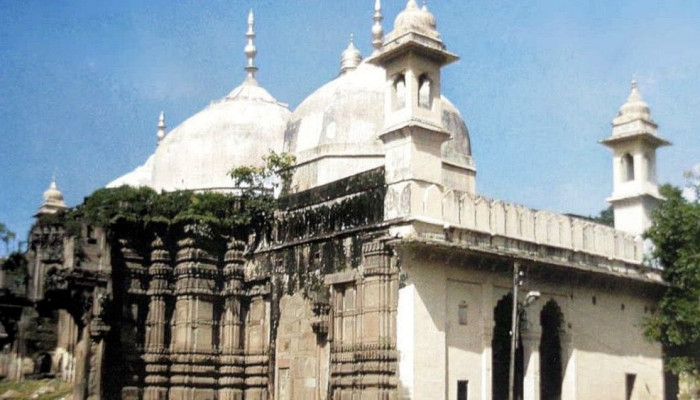Archaeological survey report reveals existence of large Hindu temple predating mosque
- In Reports
- 12:55 PM, Jan 26, 2024
- Myind Staff
A recent report from the Archaeological Survey of India (ASI) indicates the presence of a substantial Hindu temple structure within the Gyanvapi mosque complex in Varanasi, Uttar Pradesh. Advocate Vishnu Shankar Jain, who represents the Hindu side, disclosed the findings while presenting the survey report.
During a press conference, advocate Vishnu Shankar Jain highlighted that the Archaeological Survey of India (ASI) survey suggests the existence of a significant Hindu temple predating the present structure at the Gyanvapi mosque complex in Varanasi.
The ASI report, incorporating a Ground Penetrating Radar (GPR) survey, raises questions about the historical layers at the Gyanvapi mosque complex, suggesting that the present structure may have been constructed over a pre-existing one, as per Jain's interpretation.
"The ASI findings indicate that alterations were carried out on the mosque, involving the reuse of pillars and plaster with minor adjustments. Some pillars from the Hindu temple were adapted for use in the new structure, with efforts made to erase carvings on the pillars," Jain stated, referencing details from the ASI report.
Jain asserted that the report unveiled inscriptions linked to the ancient Hindu temple, inscribed in Devanagari, Telugu, Kannada, and other scripts.
"According to the ASI survey, numerous inscriptions were identified on both the current and preexisting structures. A total of 34 inscriptions were documented in the recent survey, accompanied by the collection of 32 stamped pages," Jain conveyed while presenting the report.
Jain emphasized that the inscriptions found on the stones were originally from a pre-existing Hindu temple and were repurposed during the construction and maintenance of the current structure.
"The incorporation of earlier inscriptions into the structure implies the destruction of previous structures, with their components repurposed in the construction and repair of the current structure. These inscriptions include the names of deities such as Janardana, Rudra, and Umeshwara," highlighted the senior advocate.
The disclosure follows a court decision in Varanasi that mandated the sharing of the ASI survey report on the Gyanvapi mosque complex with both Hindu and Muslim parties. The court-ordered scientific survey conducted by the ASI last year aimed to ascertain if the 17th-century mosque was built on the site of a pre-existing Hindu temple, responding to claims by Hindu petitioners.
The recent disclosures follow a court ruling in Varanasi that mandated sharing the ASI survey report on the Gyanvapi mosque complex with both the Hindu and Muslim parties.
In response to claims by Hindu petitioners asserting that the 17th-century mosque was built upon a pre-existing Hindu temple, the court ordered a scientific survey by the ASI last year to ascertain the historical layers of the Gyanvapi premises.
Image source: Economic Times







Comments